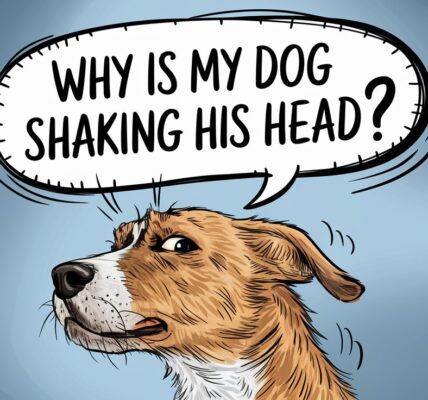
Why Do Dogs Snore
What Causes Snoring in Dogs?
Snoring in dogs occurs when there is an obstruction in the airway that disrupts normal breathing. Several factors can contribute to this:
1. Breed Predispositions
Due to anatomical structure, some breeds of dogs are more prone to snoring. Brachycephalic breeds like Bulldogs, Pugs, and Boxers have shorter skulls and flattened faces, leading to narrower airways. The compact nature of their nasal passages often results in snoring. These breeds might also have elongated soft palates or stenotic nares (narrow nostrils), further complicating airflow.
2. Obesity
Just like in humans, excess weight in dogs can lead to snoring. Overweight dogs often have more fat deposits around their necks, which can press on the airway and cause obstructions. Maintaining a healthy weight is crucial not only to reduce snoring but also to ensure overall well-being.
3. Sleeping Position
Sometimes, temporary snoring can be due to the sleeping position of dogs. Dogs that sleep on their backs may experience a collapse of the soft tissues in their throat, leading to snoring. In many cases, this type of snoring is harmless and only occurs occasionally.
4. Allergies and Irritants
Environmental allergens like dust, pollen, or smoke can irritate a dog’s nasal passages and cause inflammation. This inflammation can lead to snoring. Dogs with allergies may also experience symptoms like sneezing, itching, and watery eyes, which should be addressed to improve their comfort and health.
5. Respiratory Infections
Upper respiratory infections, such as those caused by viruses or bacteria, can lead to snoring in dogs. These infections cause inflammation and mucus build-up in the airways, making it harder for the dog to breathe normally. If your dog suddenly starts snoring and exhibits other symptoms like coughing, nasal discharge, or lethargy, it’s important to consult a veterinarian.
6. Age-Related Changes
As dogs age, their muscles, including those in the throat, can become weaker, leading to an increased likelihood of snoring. Senior dogs may also experience changes in their overall respiratory health, making regular vet check-ups essential to monitor and manage any age-related conditions.
7. Foreign Objects
Occasionally, a dog inhales or ingests a foreign object lodged in the nasal passage or throat. This can cause snoring or even more serious breathing difficulties. If you suspect your dog has something stuck in their airway, immediate veterinary attention is necessary.
When Is Dog Snoring a Cause for Concern?
While occasional snoring is harmless, persistent or severe snoring can indicate a more serious issue. Some important signs are:
Changes in Snoring Patterns: It may be worth investigating if your dog suddenly starts snoring when they never have before, or if the snoring becomes louder or more frequent.
Labored Breathing: If your dog is struggling to breathe, particularly during exercise or at rest, this is a red flag that something is obstructing their airway.
Other Symptoms: Accompanying symptoms like coughing, nasal discharge, changes in appetite, or lethargy can suggest an underlying health problem.

How to Help Your Dog Stop Snoring
If your dog’s snoring is becoming a concern, there are several steps you can take to alleviate the issue:
1. Maintain a Healthy Weight
One of the most effective ways to reduce snoring in dogs is by managing their weight. A balanced diet and regular exercise can help your dog shed excess pounds, reducing the fat deposits around the neck and improving airflow.
2. Adjust Sleeping Position
Encourage your dog to sleep in positions that don’t promote snoring. Providing a comfortable bed or pillow that elevates their head slightly can help keep the airway open. Some pet owners also find that gently repositioning their dogs when they start to snore can temporarily stop the noise.
3. Address Allergies
If your dog’s snoring is related to allergies, it’s important to minimize their exposure to allergens. Regular cleaning, air purifiers, and hypoallergenic bedding can all help reduce the presence of allergens in your home. Your vet may also recommend antihistamines or other treatments to manage allergy symptoms.
4. Regular Veterinary Check-Ups
Regular vet visits are crucial for monitoring your dog’s overall health. During these check-ups, your vet can assess your dog’s respiratory system, check for any signs of infection, and ensure that their airway is clear. If necessary, they can also perform diagnostic tests to identify the root cause of the snoring.
5. Surgery for Severe Cases
In some cases, surgical intervention may be necessary to correct anatomical issues causing snoring. This is particularly common in brachycephalic breeds, where procedures such as soft palate resection or nostril widening can significantly improve breathing and reduce snoring. Always discuss the risks and benefits of surgery with your vet.
Conclusion: Why Do Dogs Snore?
While dog snoring is often harmless, it’s important to pay attention to the patterns and associated symptoms. Understanding the reasons behind your dog’s snoring and taking appropriate steps to address it can improve their quality of life. Whether it’s adjusting their sleeping position, managing their weight, or seeking veterinary care for underlying issues, there are many ways to help your furry friend breathe easier and snore less.
FAQs: Why Do Dogs Snore
Should I be concerned if my dog snores?
Occasional snoring is usually harmless, but if it’s loud, persistent, or accompanied by other symptoms like labored breathing or coughing, it’s best to consult a vet.
Is a snoring dog a happy dog?
Snoring doesn’t necessarily indicate happiness. It could be normal, but it might also signal underlying issues like obesity or airway obstruction.
Can allergies make a dog snore?
Yes, allergies can cause inflammation in the nasal passages, leading to snoring due to restricted airflow.
How to stop a dog snoring?
To reduce snoring, maintain your dog’s healthy weight, adjust their sleeping position, address any allergies, and consult a vet if the snoring persists.

Jahanzaib Kaleem is a passionate and knowledgeable pet writer and veterinarian dedicated to enhancing the well-being of pets and educating pet owners around the world. With years of experience in veterinary medicine and a deep love for animals, Jahanzaib combines his medical expertise with a flair for writing to deliver insightful and practical advice on pet care.




















